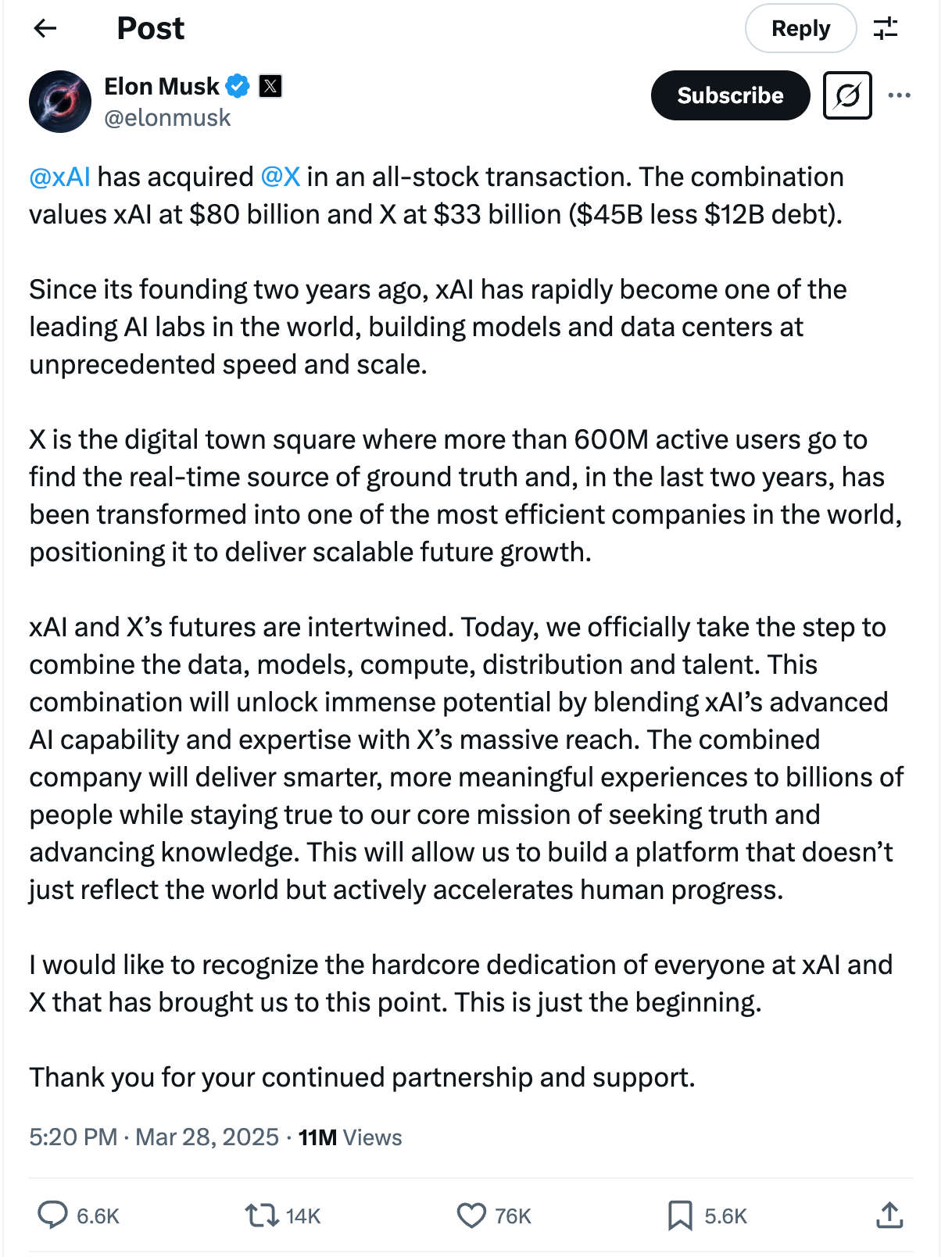xAI Swallows X, but Can It Digest Accountability?
Elon Just Took xAI In-House. The X Vision Is No Longer a Theory.
Elon Musk has merged his AI startup, xAI, into X Corp, the company that owns what we used to call Twitter.
Yes, Musk already owned both. Until now, xAI was technically a separate entity run by Musk that was distinct from the infrastructure of X (the platform). That changes now.
This isn’t a new acquisition; it’s a complete absorption.
And it matters. What Musk is building isn’t just a product. It’s a system.
The Return of X.com
To understand this move, you have to go back to 1999. Musk started a company called X.com, which aimed to be an all-in-one financial and communication platform. It eventually became PayPal—but the X.com idea was always bigger.
Now, he’s bringing it back in a form only he could pull off.
X (the platform) is the modern version of the public square.
xAI builds the intelligence that powers discovery, conversation, and decision-making.
Payments, commerce, and creator monetization are being layered in next.
Starlink and Tesla bring the pipes and devices to connect it all.
This is no longer theoretical. Musk is assembling the entire stack—content, intelligence, money, and connectivity—under one brand, with one owner and very few checks.
So What’s the Real Shift?
Think of it like this:
Before:
xAI built Grok, its ChatGPT competitor, and integrated it into X.
But technically, it was a separate company providing a service to X.
Now:
xAI is part of X Corp. The platform and the intelligence layer are one company.
This gives Musk total control over how AI is developed, trained, and deployed inside the platform where people debate politics, access news, and (soon) move their money.
This merger tightens the loop. It’s no longer AI layered on top of a social platform. It’s AI baked into the platform’s DNA.
What Comes Next Is Bigger Than Musk
Let’s be fair: Musk is doing what most Silicon Valley founders wish they could do—turn vision into execution without board approvals or VC gatekeepers.
And sure, it’s impressive. But it’s also a case study in consolidated power:
A single person now controls a major social network, a custom large language model, and the infrastructure connecting millions of people to information.
That person is also known for blocking critics, amplifying allies, and governing by tweet.
This isn’t about paranoia. It’s about accountability.
When one company—and one person—owns the public square, the algorithms that shape it, and the business model behind it, questions like “What’s fair?” and “What’s true?” stop being philosophical. They become operational decisions made behind closed doors.
It’s Not About Slowing Down. It’s About Showing Up.
This merger makes it official: Elon isn’t just building a product. He’s building a new internet operating system—with identity, conversation, AI, and commerce all bundled into one app.
Cool. Visionary. But also... vulnerable.
Not to failure. To misuse.
So the job now isn't to cheer or panic. It’s to stay engaged and push for transparency, safeguards, and accountability not because Musk is the villain but because no one should be above the systems they control.
If the future runs through one app, we should probably ask who is writing the code and who is holding them accountable.




